Prince Charles: 15-page contract reveals how the Prince of Wales tries to control the media
Behind the soft-focus image you see on television lies a ruthless machine that demands control of every aspect of interviews
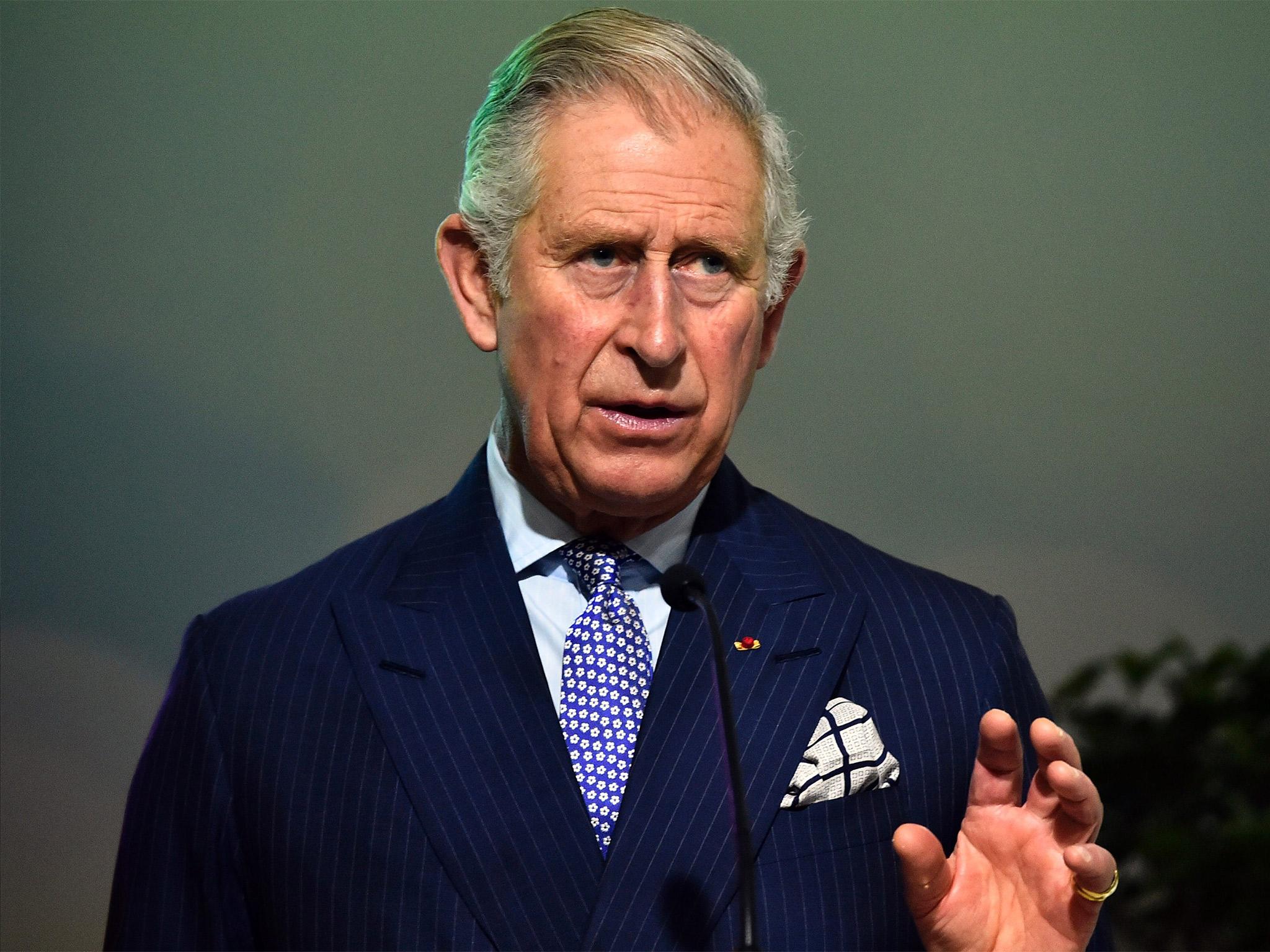
Prince Charles is demanding “North Korean-style” pre-conditions in television interviews, including advance knowledge of precise questions, the right to oversee editing and even to block a broadcast if he does not approve of the final product.
The Independent has learnt that the Prince of Wales will only speak to broadcasters on the condition they have signed a 15-page contract, demanding that Clarence House attends both the “rough cut” and “fine cut” edits of films and, if it is unhappy with the final product, can “remove the contribution in its entirety from the programme”.
The degree of censorship led to the cancellation of an interview with Prince Charles due to be conducted by Jon Snow of Channel 4 News on Sunday at the British ambassador’s residence in Paris, on the eve of the Paris climate change talks.
Channel 4 News was not prepared to conduct the interview under the conditions demanded. But it is understood that several news broadcasters have agreed to pre-interview contracts with the Prince.
The contract stipulates that an interviewer of Prince Charles “may solely ask questions” previously approved by Clarence House. The questions are written out in full within the contract.
“In the event that the Interviewer or any personnel of [the broadcaster] asks a question which has not been pre-approved, HRH or the member of [Clarence House’s] staff present during the filming of the contribution may intervene and halt filming.” In such circumstances, the broadcaster “shall have no right to use or exploit in any form whatsoever any of the material filmed”.
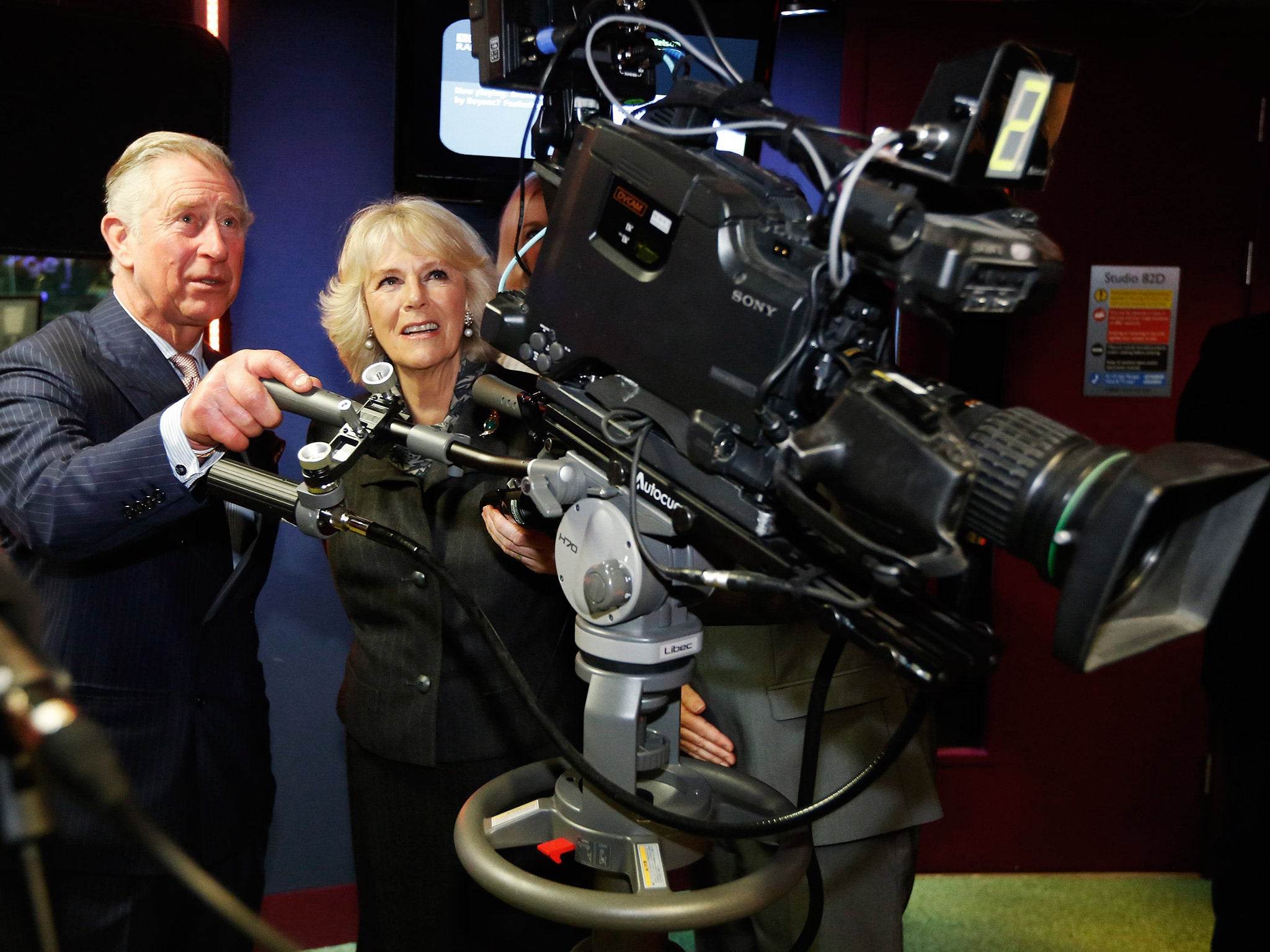
It specifies that, during the editing of the filmed interview, “issues concerning matters of fairness, balance, confidentiality or security or concerns about religious, political or racial sensitivities may be raised by the representative of [Clarence House]”.
Although the contract includes Clarence House’s recognition that “full and final artistic and editorial control” should reside with the broadcaster, this is overruled by the other strict conditions.
One source said the degree of news control was reminiscent of “North Korea” and would never be accepted in respect of other senior figures being interviewed. The existence of the contract – which some journalists believe puts them at risk of being in breach of the Ofcom broadcasting code on editorial independence and transparency – will add to controversy surrounding Prince Charles’s attempts to influence national debate.
The “black spider” memos, published earlier this year, showed how Prince Charles has for decades attempted to influence public opinion by sending secret letters to government departments on pet subjects as diverse as climate change, homeopathic medicine, housing policy and hospital food.
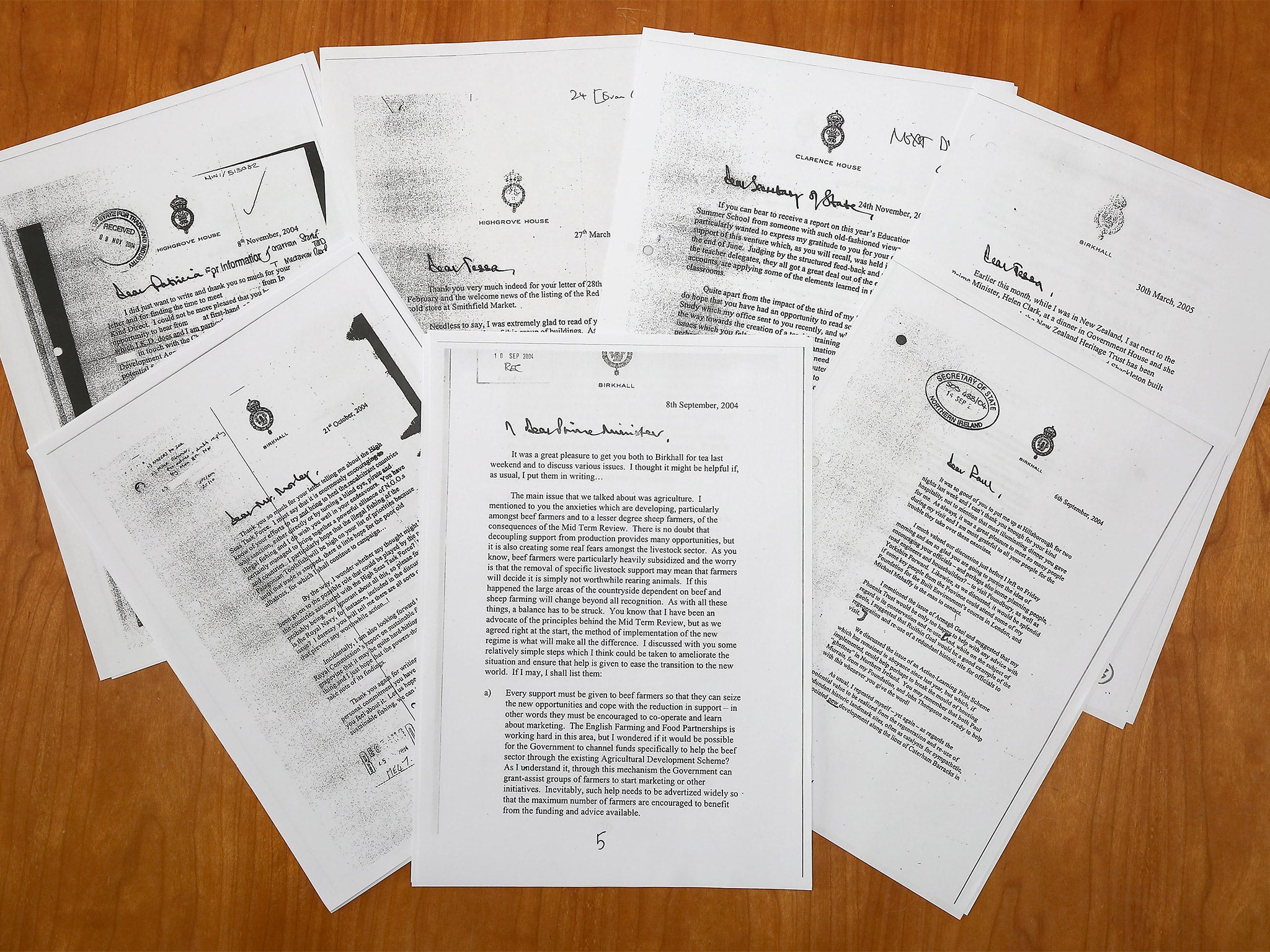
He has previously shown a greater willingness to engage with the media than other members of the Royal Family, most notably the Queen who consistently avoids comment on controversial issues.
But the emergence of Prince Charles’s “access agreement” contract suggests that he is not prepared to debate matters on the same terms as other public figures, including politicians, who are habitually subjected to questioning on topics beyond those they agreed to discuss. Senior figures in broadcast news said that written pre-interview contracts for pieces on news programmes are highly irregular.
The contracts are drawn up on behalf of Prince Charles by his principal private secretary, Clive Alderton, while the Prince’s negotiations with the media are led by his communications secretary, Kristina Kyriacou.

Clarence House said that other members of the Royal Family used similar contracts. “The issuing of broadcast contracts is standard practice across the royal households,” said a spokesperson. “All broadcasters who enter into them are keen to ensure that they do not breach any of the relevant broadcast rules and go to great lengths to protect their independence in this regard. The contracts are put in place to ensure factual accuracy and protect the broadcaster as well as the interview subject.”
The Independent understands that contracts are customised according to the media project.
Sensitivities around television’s portrayal of the Royal Family were heightened by the “crowngate” scandal at the BBC in 2007, when footage of the Queen was misrepresented in a trailer that wrongly suggested she had stormed out of a photoshoot with the photographer Annie Leibovitz. The BBC1 controller Peter Fincham was forced to resign after claiming the Queen had left “in a huff”.
In its contract, Clarence House demands prior approval of “all trailers, press releases and other promotional material” associated with an interview and to be given advance notice of the “identity of any interviewees or contributors” who feature in any programme.
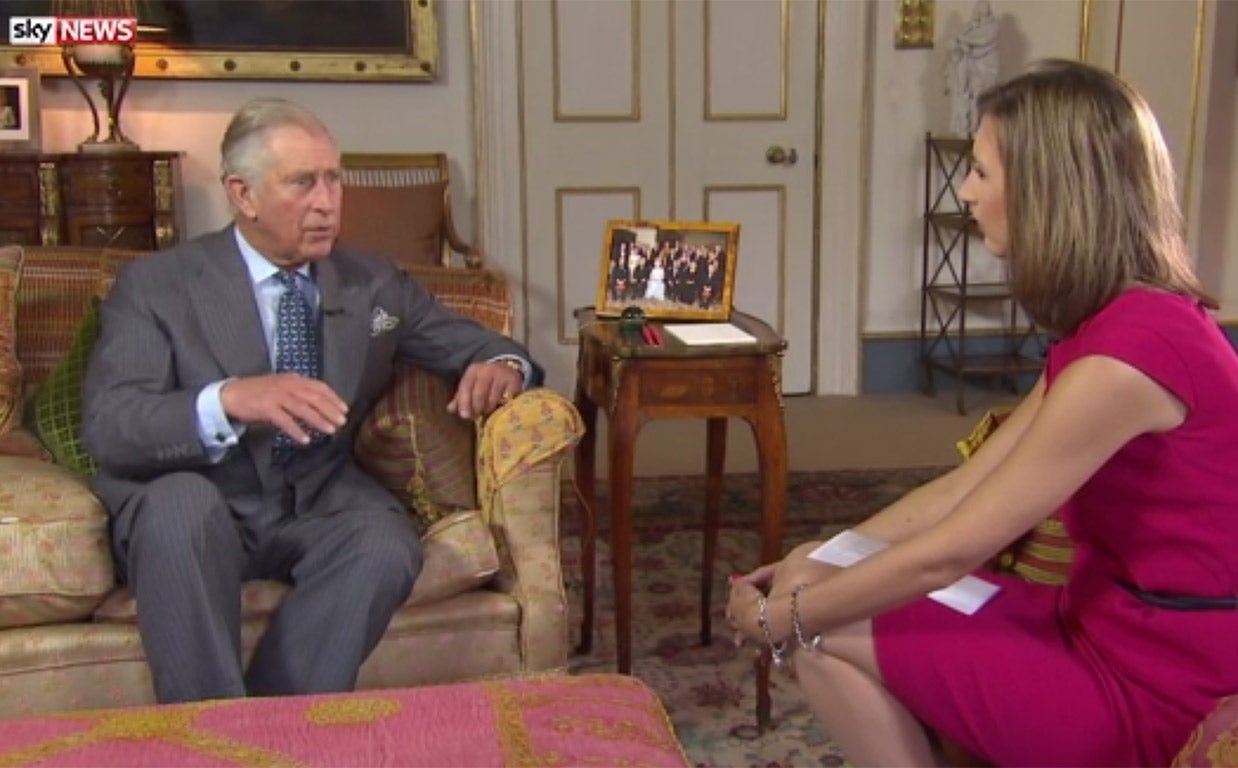
Channel 4 is not a subscriber to the royal rota media arrangements operated by Buckingham Palace. Sky News carried an extensive “exclusive” interview with Prince Charles on 23 November before the Paris talks, where he is a keynote speaker. In the 26-minute package, interviewer Rhiannon Mills, Sky News’s royal correspondent, said of Prince Charles: “In his own way, the Prince of Wales has become a climate change celebrity, able to get people talking and attracting star support for campaigns including his push to protect the rainforests.”
The Independent understands that Sky News and other news broadcasters have signed pre-broadcast contracts with Clarence House. Sky News declined to comment.
Prince Charles has also given interviews this year to CNN, whose royal correspondent Max Foster spent time with the Prince of Wales and the Duchess of Cornwall before their tour of America. CNN said: “CNN had full editorial and creative control over the interview with HRH the Prince of Wales, and no questions were set out in advance.”
The Prince has spoken several times this year to BBC Radio, including an interview with Radio 2’s The Sunday Hour in February, in which he said the radicalisation of young people was “alarming”. He also spoke out in support of small farmers on Radio 4’s On Your Farm. The BBC said: “As a matter of principle we always retain editorial control of the programmes we broadcast.”
The contract: Charles’s broadcast riders
* The Interviewer may solely ask a set of questions mutually agreed between Clarence House and [the news organisation].
* A representative of Clarence House shall be permitted to view the Programme prior to broadcast at the final “rough cut” stage
* Any issues concerning matters of fairness, balance, confidentiality or security or concerns about religious, political or racial sensitivities may be raised by the representative of Clarence House
* A representative of Clarence House shall also be permitted to view the Programme at the “fine cut” stage prior to the first transmission of the Programme (and in good time should any changes be required)
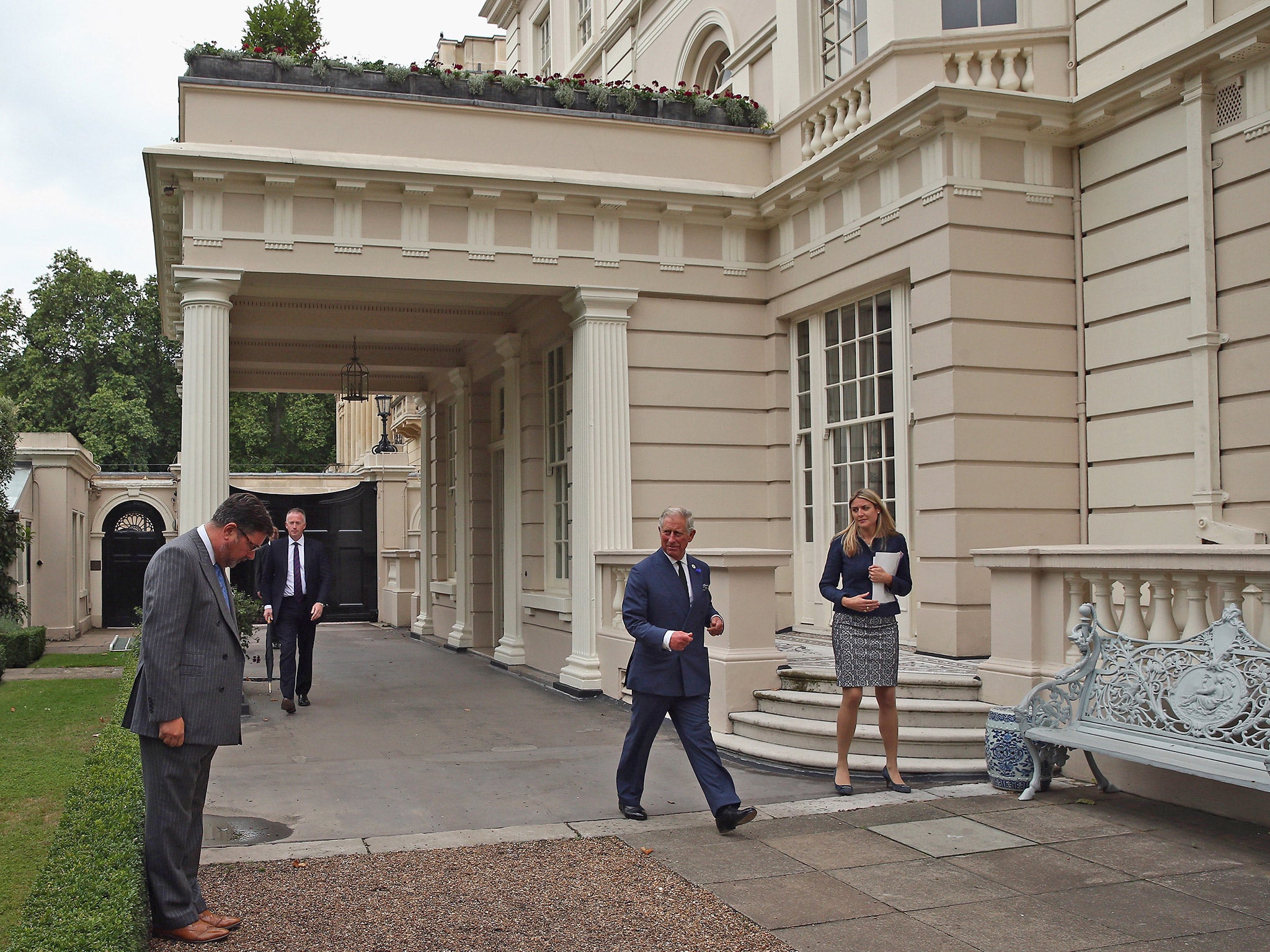
* [The news organisation] shall provide a copy of the final transmission version of the Programme to the staff at Clarence House, prior to… broadcast and Clarence House shall be entitled to require [the news organisation] to remove [Prince Charles’s] Contribution in its entirety from the Programme
* [Prior approval is required for] all trailers, press releases and other promotional material in relation to the Programme
* [Prior approval is required for] the identity of any interviewees or contributors to the Programme other than HRH
* [The news organisation] will stop filming immediately if reasonably requested to do so at any time by Clarence House
* [The news organisation] shall have no right to use or exploit in any form whatsoever any of the material recorded immediately around the interruption in filming
* [The news organisation] shall share with Clarence House its proposed marketing, press and publicity
* [The news organisation shall] keep in strictest confidence and not at any time disclose publish or reveal at any time hereafter, either personally or by means of press or publicity or advertising agencies, or by means of any social networking sites, chat rooms or otherwise by supplying information to any website, without Clarence House’s prior written approval, the footage recorded… or details of or material relating to any incident, conversation or information concerning HRH, the Royal Family or Clarence House or any other confidential information.
The colonel’: Prince’s fiercely loyal PR officer
Kristina Kyriacou was appointed communications secretary at Clarence House earlier this year, reportedly on the insistence of Prince Charles.
She has worked for the Prince for more than three years and is credited with arranging for him to guest-edit an anniversary episode of the BBC’s Countryfile show, as well as an edition of the magazine Country Life.
Charming and steely, she previously worked in entertainment public relations where she represented stars including Simon Cowell, Cheryl Fernandez-Versini and Gary Barlow, who referred to her as “the Colonel”.
Channel 4 News has an awkward relationship with Ms Kyriacou after she ripped the cover off reporter Michael Crick’s microphone in London as he tried to ask the Prince of Wales questions about the “black spider” memos in May.
Join our commenting forum
Join thought-provoking conversations, follow other Independent readers and see their replies
Comments